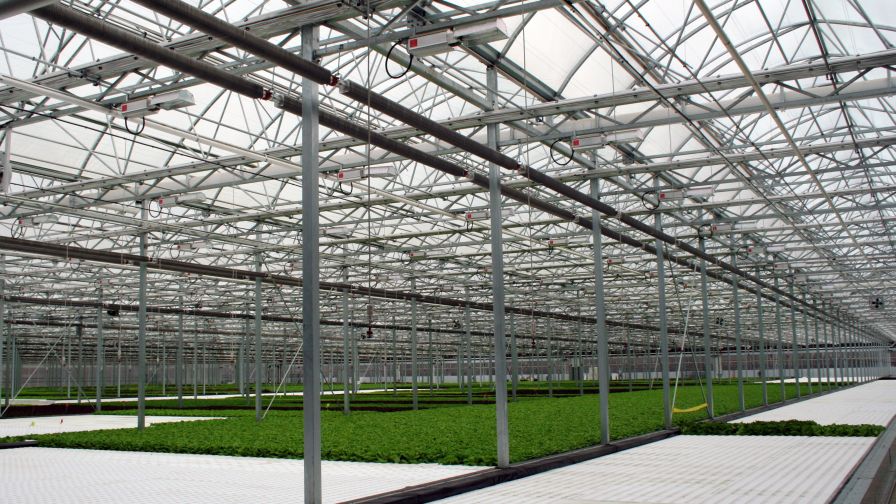Hydroponic Farm Offers Free Veggies to Immigrant Communities in Vermont
Village Hydroponics is a 40-foot-long shipping container farm that grows vegetables for new American communities in Burlington, Vt. With a crimson red exterior and vegetables painted on the side, it’s hard to miss. The farm’s executive director, Nour El-Naboulsi, has been a vegetable farmer for years, but hydroponics is a whole new ball game for him, and he’s figuring out his new setup as he grows.
“It’s a flood and drain system,” he shared in an interview with Vermont Public. “I’m here pretty much every day, and a lot of the tasks are just building out the system and working out kinks and fixing leaks.”

Nour El-Naboulsi
El-Naboulsi grows “culturally relevant” produce specifically for immigrants, refugees, and black, indigenous, and people of color in the area. Village Hydroponics’ offerings include baby lettuce mixes, bok choy, amaranth greens, kale, and collard greens. He hopes that by having access to produce they’re familiar with, these communities can find comfort within American borders.
The vegetables are free for the taking for members of these communities.
“For these new Americans who maybe haven’t seen that produce since they’ve arrived in the U.S., I love to envision us providing those veggies, them working with us to grow those veggies, and then them connecting with each other to share a meal that makes them feel more at home,” he told Vermont Public.
The container farm is new to the Burlington area, and El-Naboulsi had harvested only three times as of Dec. 9, 2024. When asked about his growing season, he explained how he will focus on production during the colder months and harvest weekly. His main reason for growing in the winter is to give new American communities one less thing to worry about.
“We have a short growing season,” he said. “In talking to the families and talking about the difficulties they go through, having that lack of fresh produce, or having to make difficult decisions between increased utility costs or getting, like, a nice bunch of local greens in the winter — which is hard to come by for anybody — I kind of wanted this to be the next progression.”





